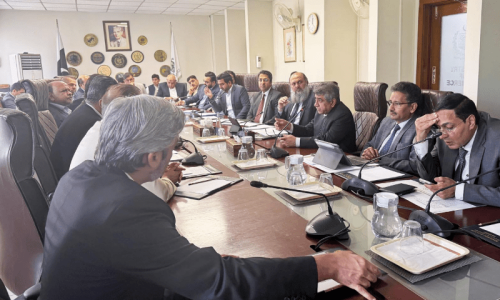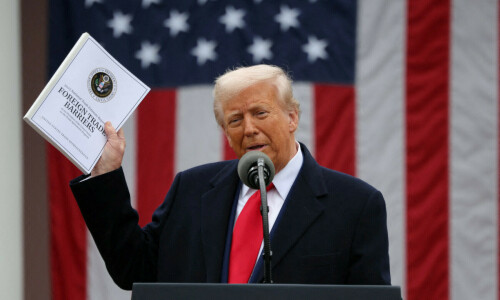ISLAMABAD/LAHORE: The Islamabad High Court (IHC) on Friday admitted a petition for regular hearing filed by six Pakistan Bar Council (PBC) members challenging the federal government’s decision to empower the Inter-Services Intelligence (ISI) to intercept calls and messages.
The petitioners — Shafqat Mehmood Chauhan, Abid Shahid Zuberi, Chaudhry Ishtiaq Ahmed Khan, Munir Ahmed Kakar, Tahir Fraz Abbasi, and Abid Saqi — argued that the notification dated July 8, 2024, is ultra vires the Constitution and the Pakistan Telecommunication (Re-Organisation) Act, 1996. They contended that wiretapping or intercepting calls could only be made after due process was followed, as prescribed under the Fair Trial Act, 2013.
Advocate Zuberi pointed out that the rules for interception and wiretapping calls have not been framed under the Telecom Act of 1996, despite the federal government’s admission of the same. He also drew parallels with a similar situation in 1998, which led to the Supreme Court’s judgement in the case of Benazir Bhutto and others vs. the President of Pakistan and others.
The court sought a report from the respondent authorities and adjourned further hearing till a date to be fixed by the registrar’s office.
Similar request referred to LHC chief justice for constitution of a larger bench
The federal government had authorised the ISI to intercept calls and messages through a statutory regulatory order (SRO) issued on July 8, citing national security concerns.
Section 54 of the Act that deals with national security states: “In the interest of national security or in the apprehension of any offence, the federal government may authorise any person or persons to intercept calls and messages or to trace calls through any telecommunication system.”
The petitioners argued that this move was a violation of citizens’ privacy and ultra vires the Constitution.
While hearing the audio leaks case, Justice Babar Sattar of the IHC had framed questions to be answered by the relevant stakeholders. The court asked if the constitution or statutory law empowers the executive, and in the present case the federal government, to record or monitor phone calls or telecommunication between private citizens, and if so, [under which] supervisory and regulatory legal regime such recording or surveillance can take place.
The federal government, apparently in response to the questions framed by Justice Sattar in the audio leaks case, empowered the ISI to “intercept calls and messages” in a bid to legalise the surveillance.
Larger bench recommended
On the other hand, a similar petition was moved before the Lahore High Court (LHC) by an MPA from Jhang, retired major Ghulam Sarwar, pleading that the impugned notification allowing the ISI to tap phone calls was a serious invasion of an individual’s privacy.
Justice Farooq Haider recommended a larger bench to hear a petition challenging the federal government’s move, noting that important legal questions had been raised in the petition. Subsequently, he sent the file to the LHC chief justice with a request to constitute a larger bench on the matter.
According to the petition, it was a settled law that the exercise of unbridled power and discretion was unconstitutional. The interception/tapping of phone calls in such an unstructured manner constituted a violation of freedom of expression and speech, the petitioner argued, adding that anything that was arbitrary or excessive would be held to be outside the parameters of reason. While arguing that the impugned notification in the name of national security conferred unchecked and arbitrary powers on the executive that were of the broadest latitude, the petitioner asked the LHC to set aside the impugned notification for being unconstitutional and also order the federal government to formulate the rules for exercising the powers delegated under Section 54 of the Telecom Act.
Published in Dawn, July 13th, 2024













































